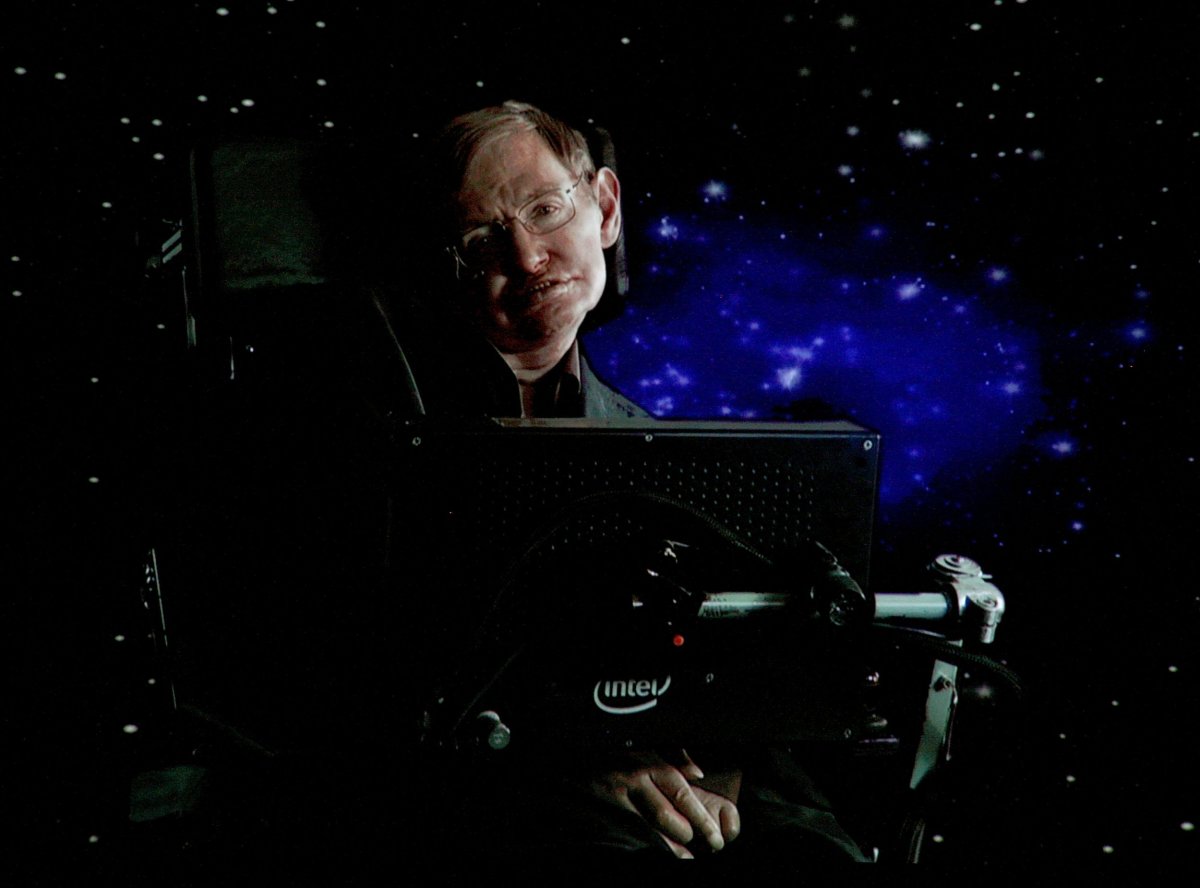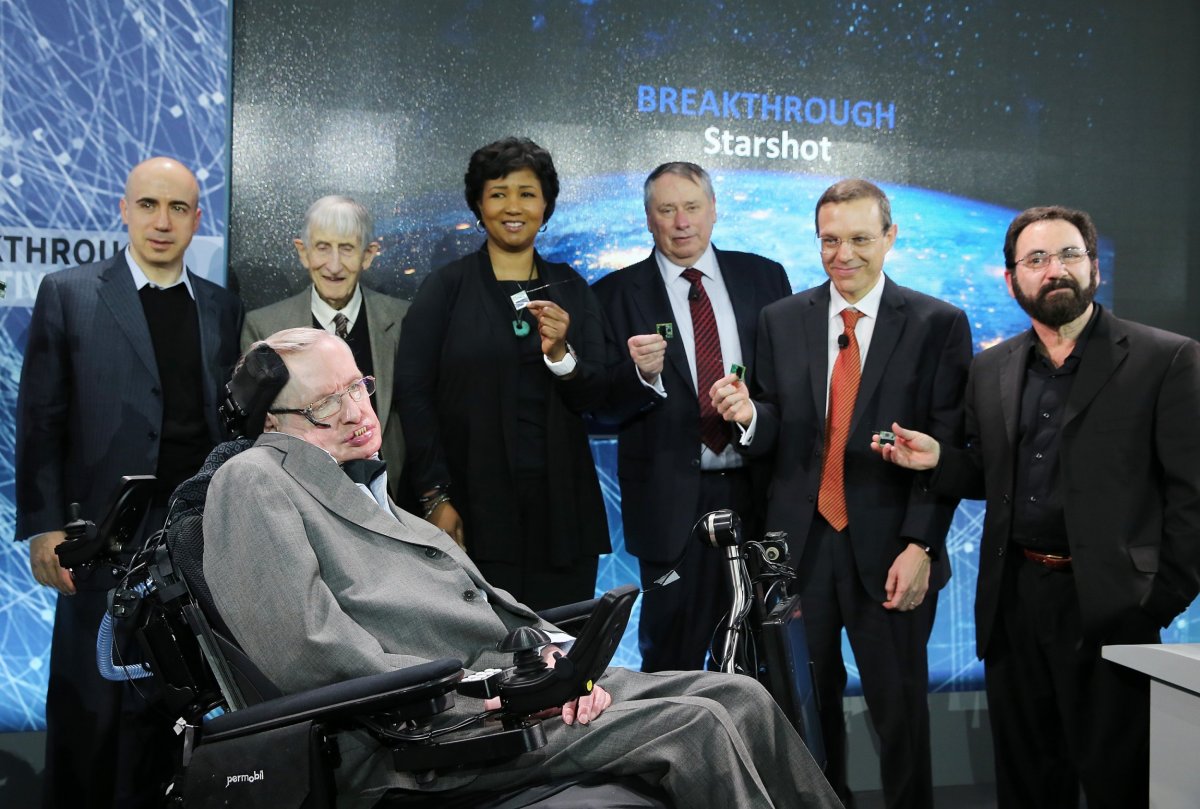Renowned astrophysicist Stephen Hawking died on March 14 at the age of 76. Hawking awed us with his remarkable mind, which delivered revelations about black holes and other wonders of the universe, and with his defiant inability to be diminished by his paralysis, brought on by his diagnosis of amyotrophic lateral sclerosis, or ALS, when he was 21 years old.
Hawking was revered as much by other scientists as he was by the general public. Newsweek asked a few luminaries about how Hawking inspired them, what he represented and what he contributed to our world. Their reflections are below.
The following comments have been edited and condensed.

Mae Jemison
Engineer, physician and former NASA astronaut
When Stephen Hawking came along there was already the Apollo program, and I grew up during that time period when we were going into space. I think what Stephen Hawking did quite admirably is he got the public to think more deeply about our universe and not assume that we couldn't understand it.
We owe a debt to him. He made it possible for us to talk about black holes not as just something that's in a science fiction movie. And when they are in a science fiction movie, people now know they exist for real. We can talk about time and space and think about the greater universe and our place in it—he definitely helped to pull that to the forefront.
Avi Loeb
Theoretical physicist, Harvard University
Stephen embodied the superiority of mind over matter. He demonstrated that the human spirit can overcome all physical limitations and that the human mind can comprehend the deepest secrets of nature. With his optimistic mindset, he discovered that even a black hole can shine brightly.
(Excerpted from a statement sent to Newsweek and posted by Loeb online)

Brian Greene
Theoretical physicist, Columbia University
Stephen Hawking's transformed our understanding of space and time. His profound insight into black holes—showing that they are not completely black but instead can spew out a bath of particles—has kept us physicists busy for 40 years, and will continue to provide inspiration well into the future.
Michio Kaku
Physicist and Futurist, City College of New York
Not since Albert Einstein have we had a towering figure in science like Stephen Hawking, who can probe the deepest secrets of space and time and also fascinate millions of people concerning the mysteries of the universe. He was a rock star.
What was the source of our fascination with him? Like Einstein, the public viewed Stephen Hawking as a messenger from the stars. They answered and shed light on some of our deepest questions. Where did it all begin? What is the ultimate fate of the universe?

The greatest problem in all of physics is to unify general relativity with quantum mechanics: the theory of the atom. Einstein began the search for a theory of everything that would allow us to, in his words, "read the mind of God." Stephen Hawking carried on that tradition of trying to unify these two great theories. And in the process, he touched the lives of billions of people with his bestseller, A Brief History of Time, which sold 10 million copies.
He also had a sense of humor. He didn't mind being on the cartoon series The Simpsons, or appearing with Einstein and Isaac Newton of Star Trek, or having an Oscar-winning movie, The Theory of Everything, made about his life. By overcoming incredible odds—odds that would normally crush a person—he attained a stature in society not seen since Einstein.
Black holes are the end product of a dying giant star. And they're black because nothing can escape their ferocious gravity. Hawking overturned that conception by showing that black holes are actually gray. They generally emit what is now called Hawking radiation, which means that eventually the black hole will lose most of its energy and eventually explode.

Hawking did not win a Nobel Prize in physics because this award is given to individuals who have found testable, reproducible results. Hawking radiation is so faint that our instruments are too feeble to measure it. However, physicists believe Hawking radiation must exist, or else all of quantum theory relaxes and modern physics goes down the toilet. Every physicist believes that Hawking radiation exists but is too faint to measure in the laboratory.
When I first visited Stephen's house in the mid 1980s, I was amazed by his contraptions—mechanical devices that allowed him to read research journals; page-turners that would grab a page and turn it for him. And he would communicate with graduate students by garbling, and students got very good at deciphering his garble. Later, as we know, he communicated through his fingers, his eyes and finally movements of his cheek. I was so impressed by his sheer willpower. A lesser person would have been crushed by the burden of ALS. He thrived.
Uncommon Knowledge
Newsweek is committed to challenging conventional wisdom and finding connections in the search for common ground.
Newsweek is committed to challenging conventional wisdom and finding connections in the search for common ground.
About the writer
Katherine Hignett is a reporter based in London. She currently covers current affairs, health and science. Prior to joining Newsweek ... Read more
To read how Newsweek uses AI as a newsroom tool, Click here.








